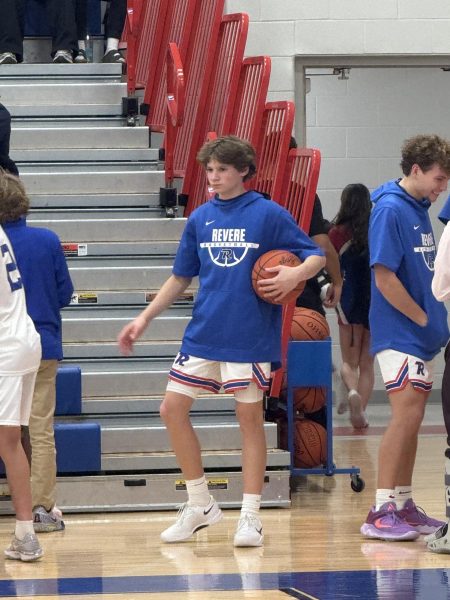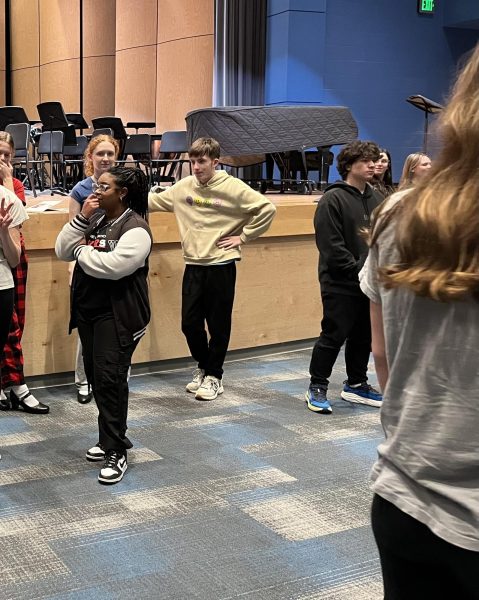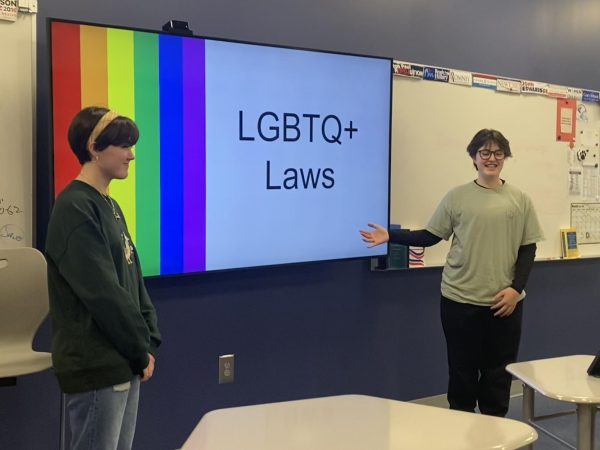Greek life promotes friendship, philanthropy
2012 Revere graduate and sophomore at Baldwin Wallace University, Emma Harding, never thought she would join sorority. Harding expected the stereotype experience: partying, drinking and pranking underclassmen. The films Legally Blonde, The House Bunny, The Haunting on Sorority Row, Animal House and others showcase the negative outlook on Greek life in colleges, and that was the side exposed to Harding. Harding began her sorority freshman year, thinking if she did not like it she could simply “drop it.” Once what is considered “bid day” came around, Harding joined disregarding her unexcited feelings. Now two years since the recruitment process, Harding considers joining her sorority the “best decision [she] has ever made.”
In 1776 the College of William and Mary created its first “secret society” known as Phi Betta Kappa. They had rituals, handshakes, mottoes, a code of laws while meeting regularly to discuss group efforts, making it later the first Greek fraternity. Since 1776, Greek life has spiraled into different sections, including the creation of all female sororities in the 1850s with Alpha Delta Pi. Harding is a member of Alpha Gamma Delta, which is technically a women’s fraternity. Harding believes her involvement in her sorority has helped her immensely throughout college. Harding explained how her involvement in her sorority has changed her as an individual.
“I would not be the confident person I am today if it wasn’t for my sorority. I have gained leadership, friendships, time management, responsibility and so much more. I really cannot put into words how much my sorority means to me. The friends and memories I have made are irreplaceable,” Harding said.
Different organizations practice different forms of recruitment; commonly, recruitment begins with “rush week.” This usually consists of activities and events that hope to inform potential new members on the organizations and its current members. Josh Cherok, Interfraternity Council President at Kent State University (KSU) commented on the negative connotations around rushing for a fraternity or sorority.
“The ‘rush’ process is not even close to as bad as they portray it on TV, etc. Many times it is just an educational process where history of your fraternity is taught,” Cherok said.
A common negative idea centered on rushing is the idea of hazing. Fraternities and sororities receive a bad reputation due to hazing problems in the past with other organizations. Another part of the recruitment process includes pledging, which gives the organization the right to deny or admit individuals into its section. Some organizations have departed from pledging due to negative connotations around the process, such as possible hazing to new members. Cherok explains the no-hazing policy of Greek organizations.
“Hazing is 100% illegal and punishable by law. Any fraternity who is found guilty of such a thing is banned from campus. They face university regulation as well as the actual law… I am very happy to say that I was never hazed and no one in our Greek community is hazed. I do not understand a concept of where people rush and you haze them and in a semester, you are supposed to be brothers and best friends…It doesn’t make sense. We pride ourselves on a non-hazing environment,” Cherok said.
Cherok also revealed that his involvement in Greek life has led to many other opportunities throughout his college career.
“Greek life has given me a home away from home. Greek Life provides you with the skills and networking options to become a better person [and] to grow in life. I was awarded with the Kent State Student Leader of the Year award last year. Without Greek life, this would not be possible for me,” Cherok said.
Freshman and Delta Gamma (Gamma Epsilon) member at KSU, Kelly Robson, claims she joined her sorority to meet people considering she did not know many people when she began college. Robson commented on why involvement at KSU was important to her.
“Since I was involved in high school a lot I decided to be involved at Kent. I also joined because there are over 140 girls in my chapter and I was given so many connections by joining,” Robson said.
In regard to the stereotypes of sororities and fraternities, Cherok, Robson and Harding all believe one should consider the experience for himself or herself before judging. Robson explained how she felt prior to joining and what she learned after taking the initiative risk.
“I knew going into recruitment that I would be competing with many of your typical sorority girls, but in reality the chapter does not want your typical sorority girl, all the chapters are looking for a variety of girls that can bring different characteristics to the table. There are a lot of stereotypes about sorority girls, but don’t be so quick to judge until you try it,” Robson said.
While stereotypes may defer one’s decision to partake in Greek life, there are surprising rules one must abide by while in an organization. Cherok explained that KSU’s local interfraternity council has local regulations for social events, as well as abides by the Fraternal Information and Programming Group’s requirements. According to the Risk Management Policies of the FIPG, Inc., sororities are not allowed to have alcohol in their housing; fraternities are permitted, yet they must check ID’s before entrance into housing as well as limit the number of beverages a 21 year old may bring into an event. Robson noted that sororities and fraternities focus immensely on philanthropic goals. Cherok commented on the good sororities and fraternities do for their communities and how they pride themselves on those achievements.
“Many don’t understand that often times Greeks are responsible for raising the most money by a student organization. Greeks provide thousands and thousands of community service hours each
year. People think fraternities and sororities are about ‘buying’ your friends and drinking every moment you can. Everyone knows that there are several people who drink on campus. Here at Kent, we constantly are looking at ways to promote the good in our community. We want to represent our school and our organizations properly. We
want the outside community to understand where our priorities really are. They are in helping better the community,” Cherok said.
Harding also noted what she does within her sorority to promote involvement within Baldwin Wallace University as well as the community as a whole.
“We put on philanthropy events [and] we volunteer as a group as well. As for social events, we have mixers with other sororities and fraternities, crush parties in the fall and spring and a formal in the spring. We also have a two-day competition in April against other sororities and organizations [with] an obstacle race, pyramid building, tug of war and boating race. That’s the best event in my opinion,” Harding said.
Robson also noted that another stereotype alongside the partying aspect is the cost. Baldwin Wallace University’s website notes that along with a $280 initial charge, sorority dues average $240 per semester, not including costs of events and meals. The average cost for an active, initiated fraternity member is $295 per semester as well. Robson claims that the idea that one is “paying for [his or her] friends” is regarded as true; however, she believes that the cost is well worth it.
“If that is the case, I am not paying enough. The memories, the girls and the impact we make is something unexplainable, and that is something I’ll never forget,” Robson said.
Cherok explained that fraternities and sororities generally have payment plans. Cherok stated why this is.
“The simple reason behind [having payment plans] is due to insurance. Greek members are simply the safest on campus. Costs should not deter people from the overall benefits of
Greek life. The experience we receive is simply priceless,” Cherok said.
Cherok, Robson and Harding believe that without Greek life, their college experiences would be much different. Cherok and Harding both believe it was the best decision they have ever made, and they all plan to continue the tradition in years to come.





